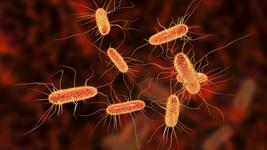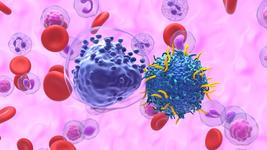Modalis Partners with SOLVE FSHD to Develop CRISPR Therapy for Facioscapulohumeral Muscular Dystrophy
CMN Intelligence - The World’s Most Comprehensive Intelligence Platform for CRISPR-Genomic Medicine and Gene-Editing Clinical Development
Providing market intelligence, data infrastructure, analytics, and reporting services for the global gene-editing sector. Read more...
Modalis Therapeutics and SOLVE FSHD, a venture philanthropy organisation dedicated to accelerating treatments for facioscapulohumeral muscular dystrophy (FSHD), announced yesterday that they have entered a strategic collaboration to develop an innovative therapy for FSHD.
FSHD is a devastating, incurable genetic muscular disorder that affects approx. 1 million individuals worldwide. Two disease subtypes exists, FSHD1 and FSHD2. FSHD1 accounts for about 95% of all cases and arises through epigenetic changes in the D4Z4 repeat region on chromosome 4. This leads to activation of the double homeobox protein 4 gene (DUX4) (which is normally transcriptionally repressed), resulting in the expression of proteins that damage muscles. Over time, the affected muscles become weak and atrophic. FSHD is the third most common type of muscular dystrophy after Duchenne and Becker muscular dystrophies and myotonic dystrophy.
MDL-103 is designed to durably suppress disease-causing gene DUX4
Under the new partnership, SOLVE FSHD will provide strategic funding to support the development of Modalis’ MDL-103 programme, which is developed using Modalis’ proprietary CRISPR-GNDM® (Guide Nucleotide-Directed Modulation) technology. This technology can modulate gene expression without introducing double-strand DNA breaks.
MDL-103, which is in the discovery research stage of development, is designed to continuously suppress the expression of the DUX4 gene with durable activity over long periods of time under the control of a strong, muscle-specific promoter. The candidate will be delivered to the muscles of patients using a muscle-tropic adeno-associated virus (AAV) delivery system.
Commenting on the partnership in an official press release published yesterday, Haru Morita, CEO of Modalis said: »We are delighted to be working in partnership with SOLVE FSHD and greatly appreciate the invaluable support for the development of MDL-103. This strategic collaboration is a strong validation of Modalis’s CRISPR-GNDM® technology and our MDL-103 program. As a pioneer in this technology, we have demonstrated promising long-term drug efficacy in mouse models, shown durable target engagement and safety in non-human primates, and exhibited excellent biodistribution in neuromuscular disorders. We believe that MDL-103, which incorporates CRISPR-GNDM® technology with a muscle tropic AAV delivery system, has significant potential as a breakthrough treatment for FSHD.«
Other epigenetic-based efforts to treat FSHD including EPI-321, which is developed by Epicrispr Biotechnologies. In April of this year, Epicrispr announced plans to start a global Phase 1/2 clinical trial of EPI-321 in 2025, following FDA IND clearance as well as clearance by New Zealand's regulatory body Medsafe. EPI-321 consists of a compact catalytically-dead Cas9 (dCas9ONYX) protein fused to gene-suppressor modulators that re-methylate the DUX4 locus, along with a gRNA targeting D4Z4, all packaged in an AAVrh74 vector.
Learn more about gene editing for muscular dystrophies
Learn more about how gene-editing technologies are being used to develop treatments for muscular dystrophies in our recent expert overview by Dr. Cecilia Jimenez-Mallebrera, who leads translational neuromuscular disease research at Barcelona's Sant Joan de Déu Pediatric Hospital. Read her overview here: Gene Editing for Muscular Dystrophies: Where Do We Stand?
To get more CRISPR Medicine News delivered to your inbox, sign up to the free weekly CMN Newsletter here.
Tags
ArticleCMN BriefsNewsFacioscapulohumeral muscular dystrophy (FSHD)Muscular dystrophiesEpigenome editing (e-GE)Epicrispr BiotechnologiesModalis Therapeutics
CLINICAL TRIALS
Sponsors:
Base Therapeutics (Shanghai) Co., Ltd.
Sponsors:
Base Therapeutics (Shanghai) Co., Ltd.







